An army should always be so distributed that its parts can aid each other and combine to produce the maximum possible concentration of force at one place, while the minimum force necessary is used elsewhere to prepare the success of the concentration.
B. H. LIDDELL HARTThe more closely [the German army] converged on [Stalingrad], the narrower became their scope for tactical manoeuvre as a lever in loosening resistance. By contrast, the narrowing of the frontage made it easier for the defender to switch his local reserves to any threatened point on the defensive arc.
More B. H. Liddell Hart Quotes
-





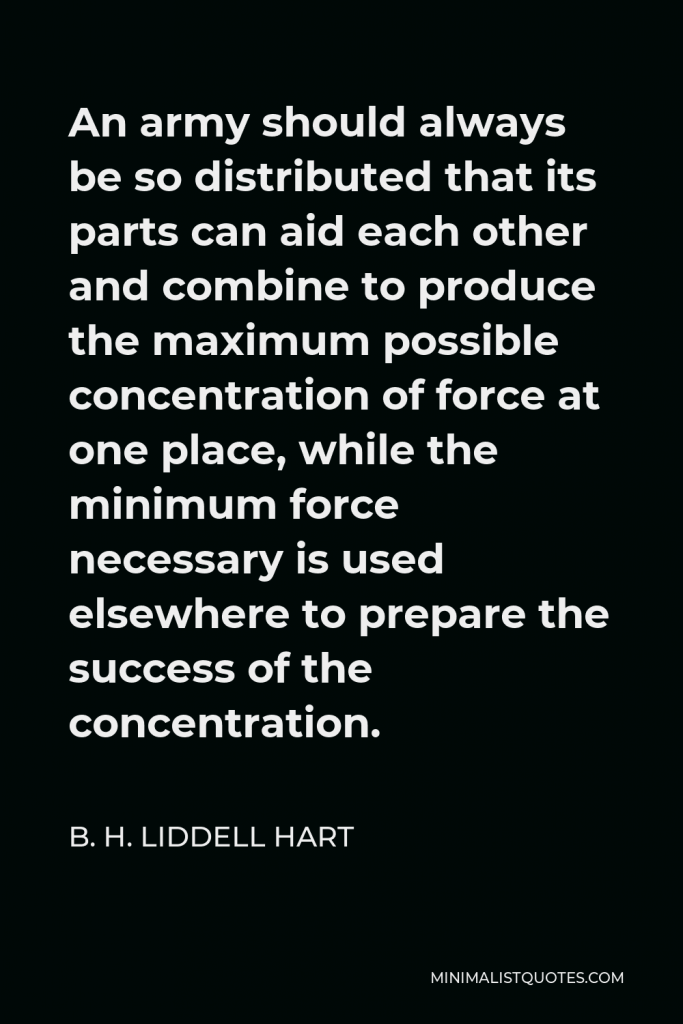

-





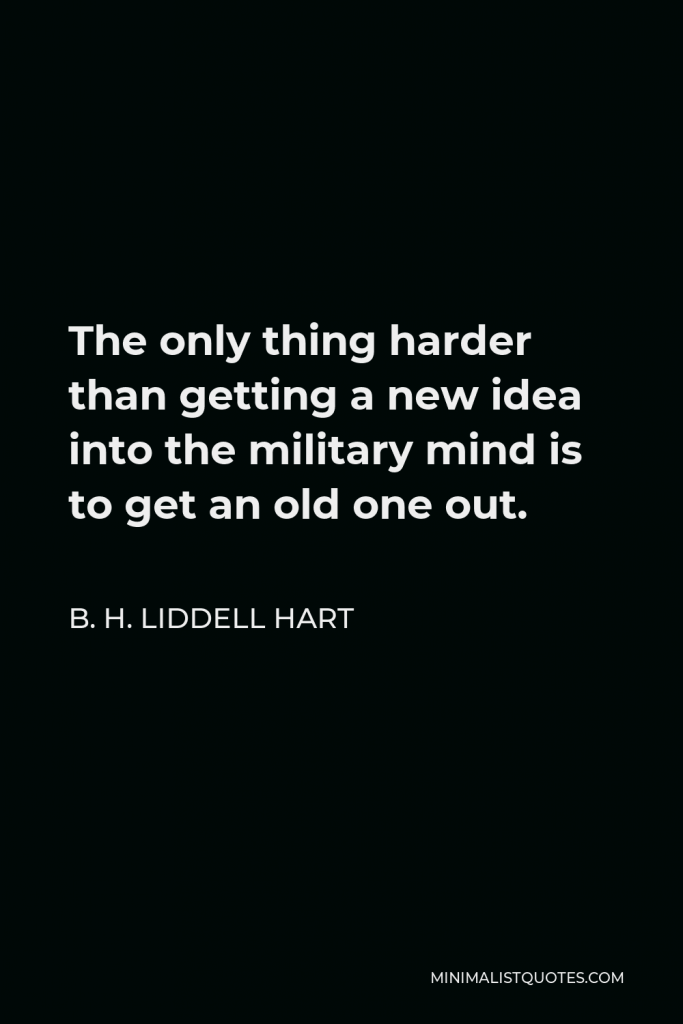

The only thing harder than getting a new idea into the military mind is to get an old one out.
B. H. LIDDELL HART -





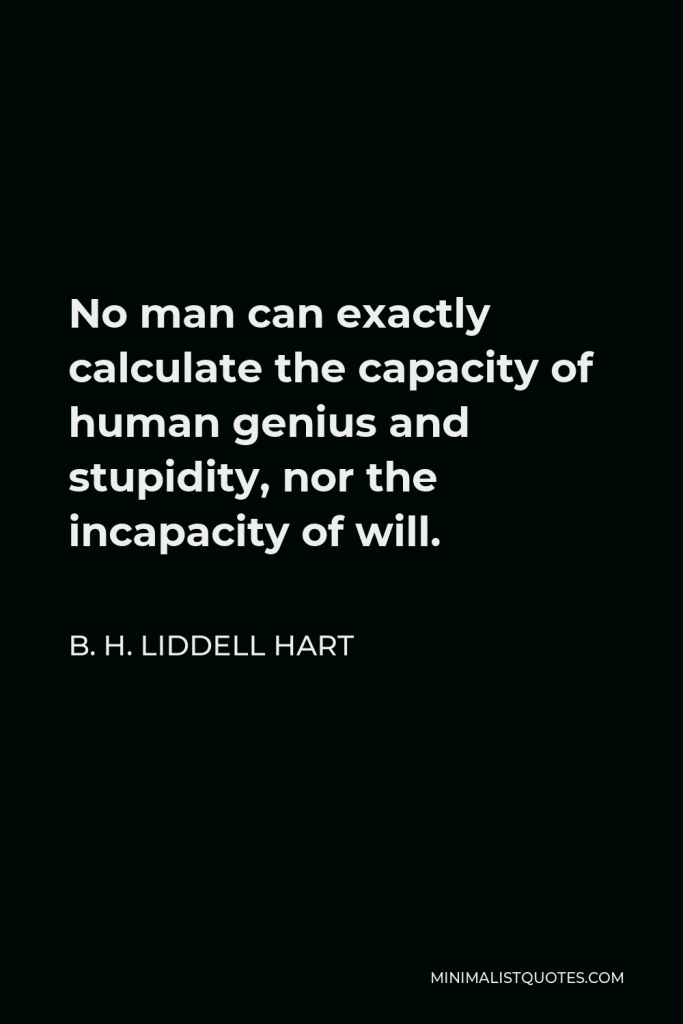

No man can exactly calculate the capacity of human genius and stupidity, nor the incapacity of will.
B. H. LIDDELL HART -





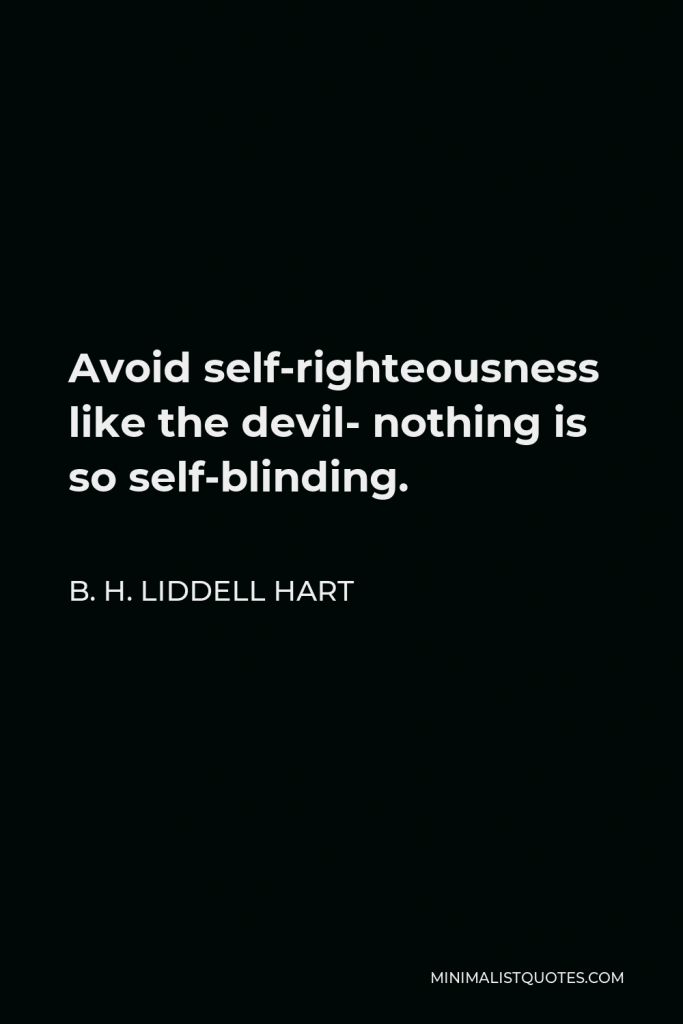

Avoid self-righteousness like the devil- nothing is so self-blinding.
B. H. LIDDELL HART -





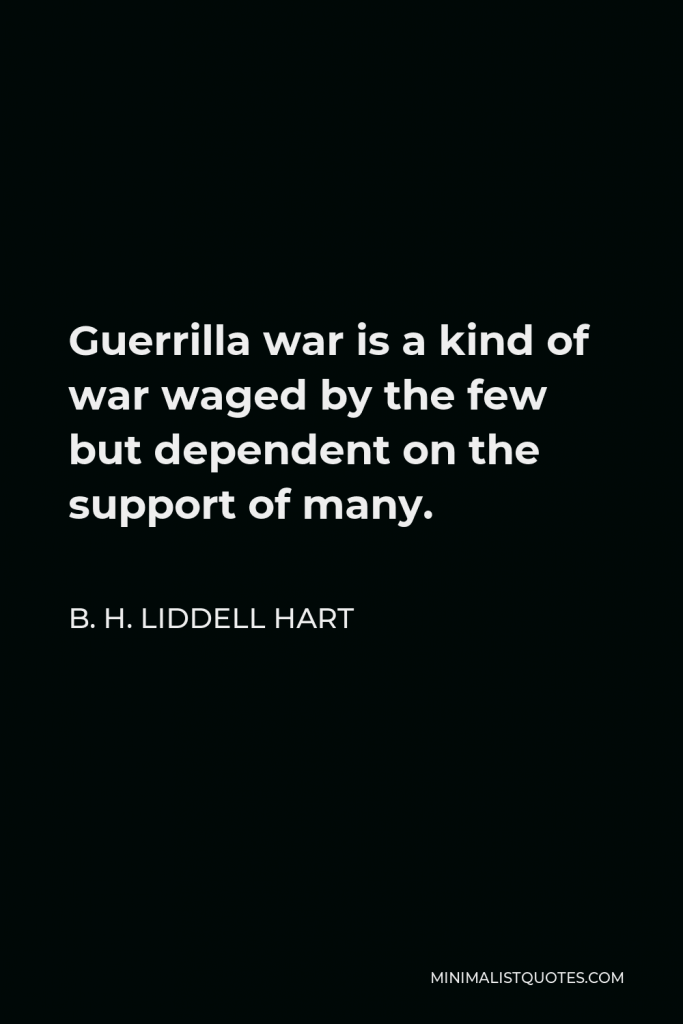

Guerrilla war is a kind of war waged by the few but dependent on the support of many.
B. H. LIDDELL HART -





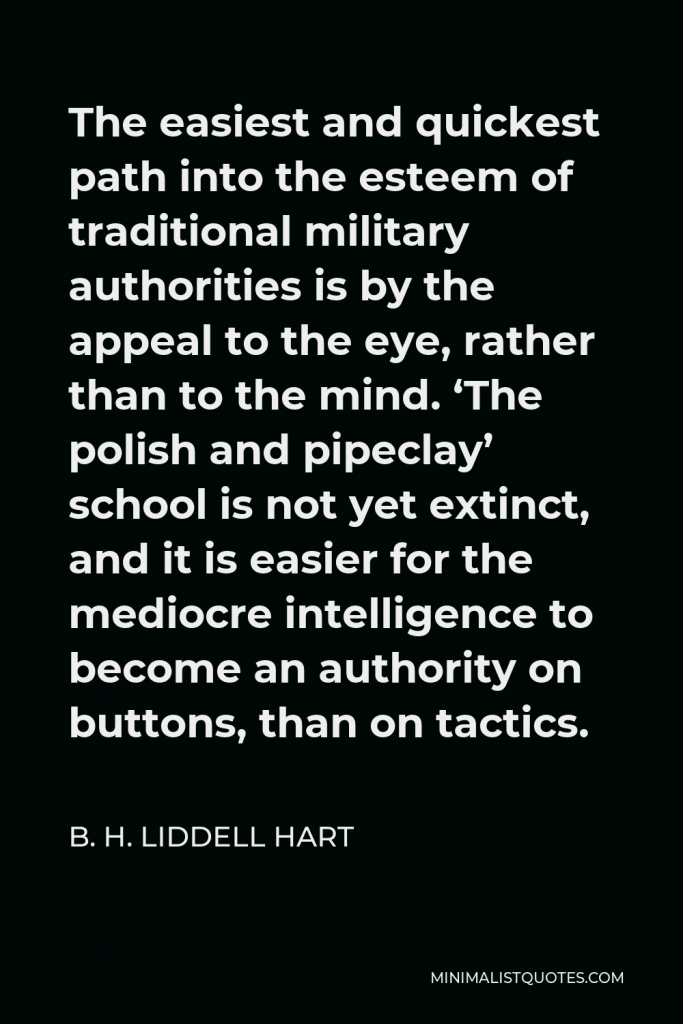

The easiest and quickest path into the esteem of traditional military authorities is by the appeal to the eye, rather than to the mind. ‘The polish and pipeclay’ school is not yet extinct, and it is easier for the mediocre intelligence to become an authority on buttons, than on tactics.
B. H. LIDDELL HART -





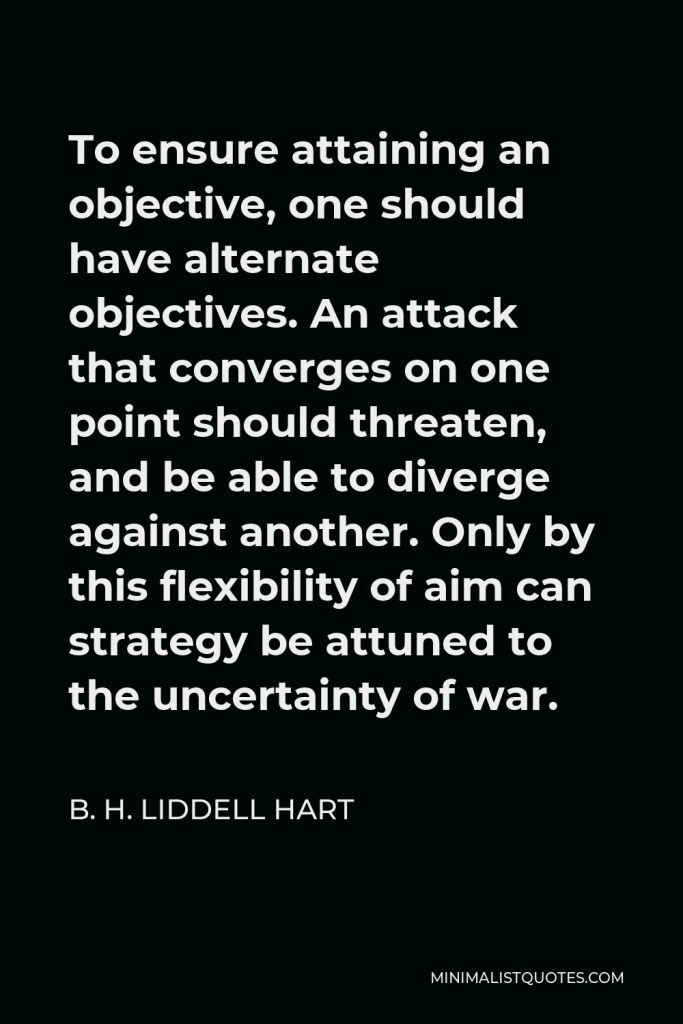

To ensure attaining an objective, one should have alternate objectives. An attack that converges on one point should threaten, and be able to diverge against another. Only by this flexibility of aim can strategy be attuned to the uncertainty of war.
B. H. LIDDELL HART -





![B. H. Liddell Hart Quote - [The] aim is not so much to seek battle as to seek a strategic situation so advantageous that if it does not of itself produce the decision, its continuation by a battle is sure to achieve this. In other words, dislocation is the aim of strategy.](https://minimalistquotes.com/wp-content/uploads/2022/10/the-aim-is-not-so-much-to-seek-battle-as-to-seek-a-683x1024.jpg)

[The] aim is not so much to seek battle as to seek a strategic situation so advantageous that if it does not of itself produce the decision, its continuation by a battle is sure to achieve this. In other words, dislocation is the aim of strategy.
B. H. LIDDELL HART -





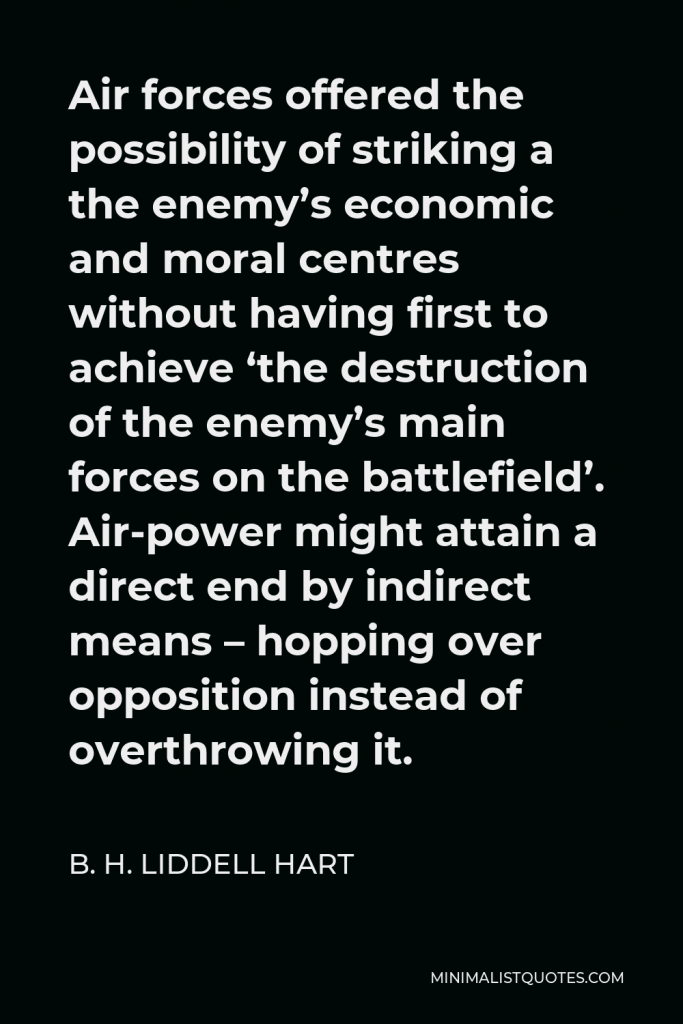

Air forces offered the possibility of striking a the enemy’s economic and moral centres without having first to achieve ‘the destruction of the enemy’s main forces on the battlefield’. Air-power might attain a direct end by indirect means – hopping over opposition instead of overthrowing it.
B. H. LIDDELL HART -





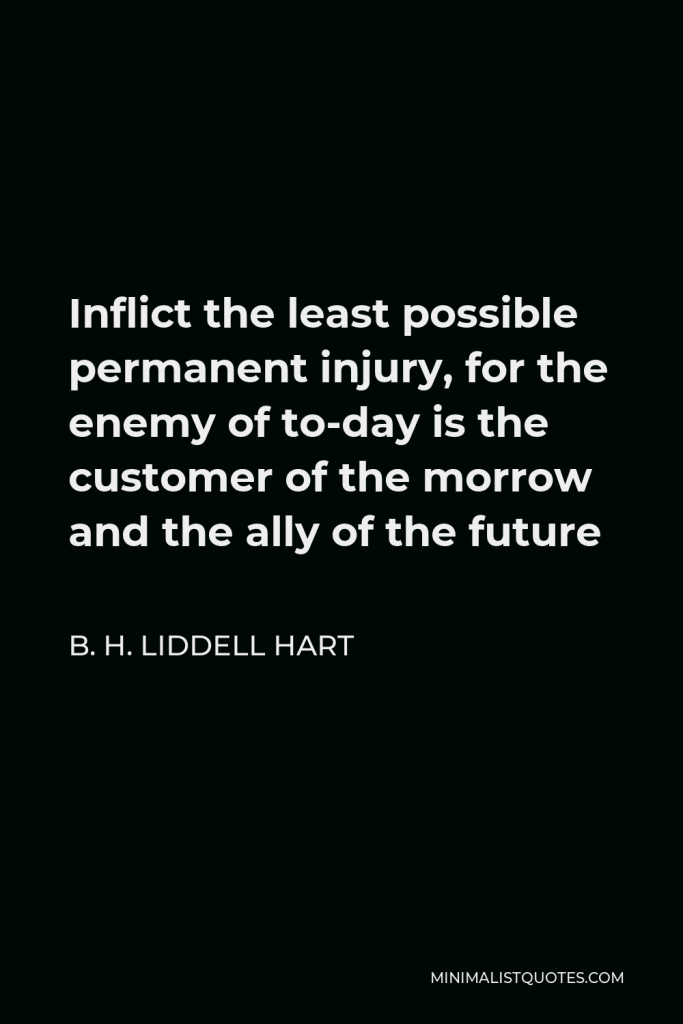

Inflict the least possible permanent injury, for the enemy of to-day is the customer of the morrow and the ally of the future
B. H. LIDDELL HART -





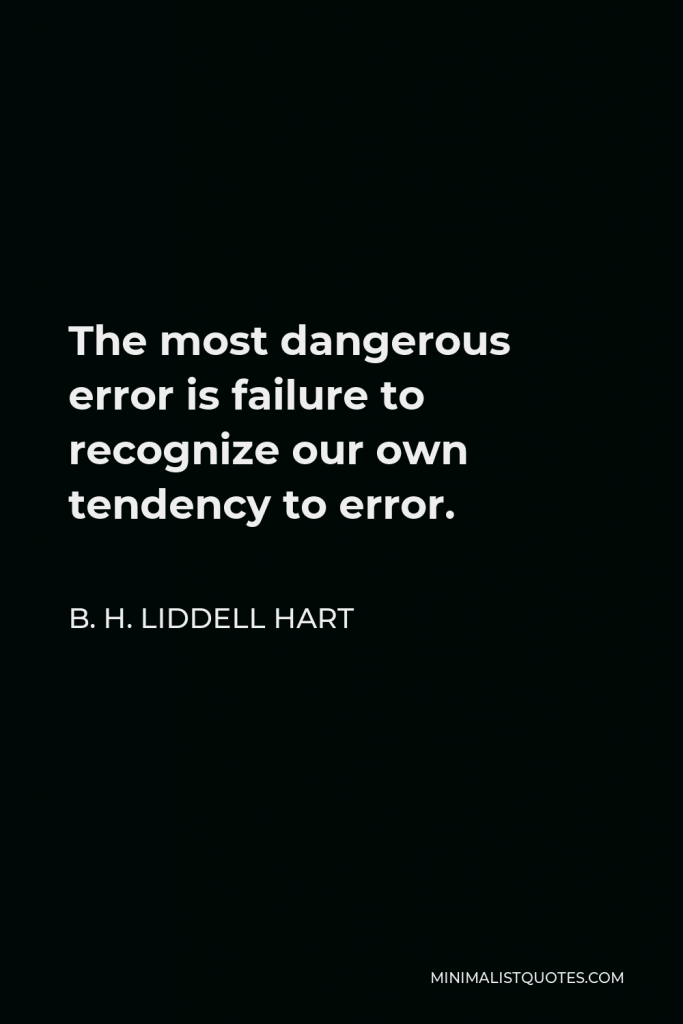

The most dangerous error is failure to recognize our own tendency to error.
B. H. LIDDELL HART -







The search for the truth for truth’s sake is the mark of the historian.
B. H. LIDDELL HART -





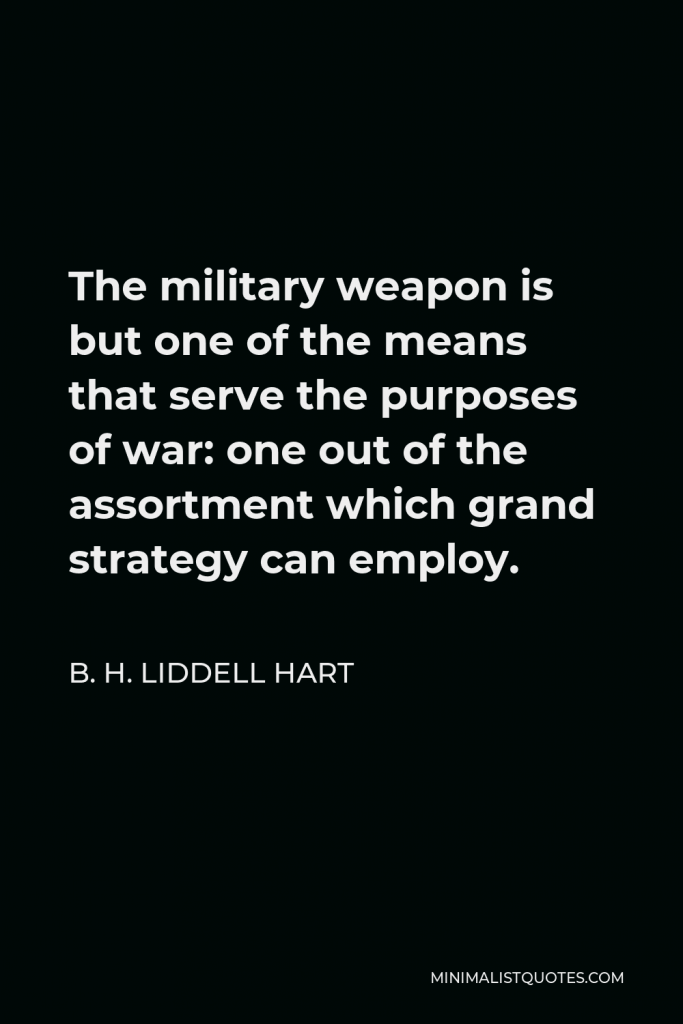

The military weapon is but one of the means that serve the purposes of war: one out of the assortment which grand strategy can employ.
B. H. LIDDELL HART -





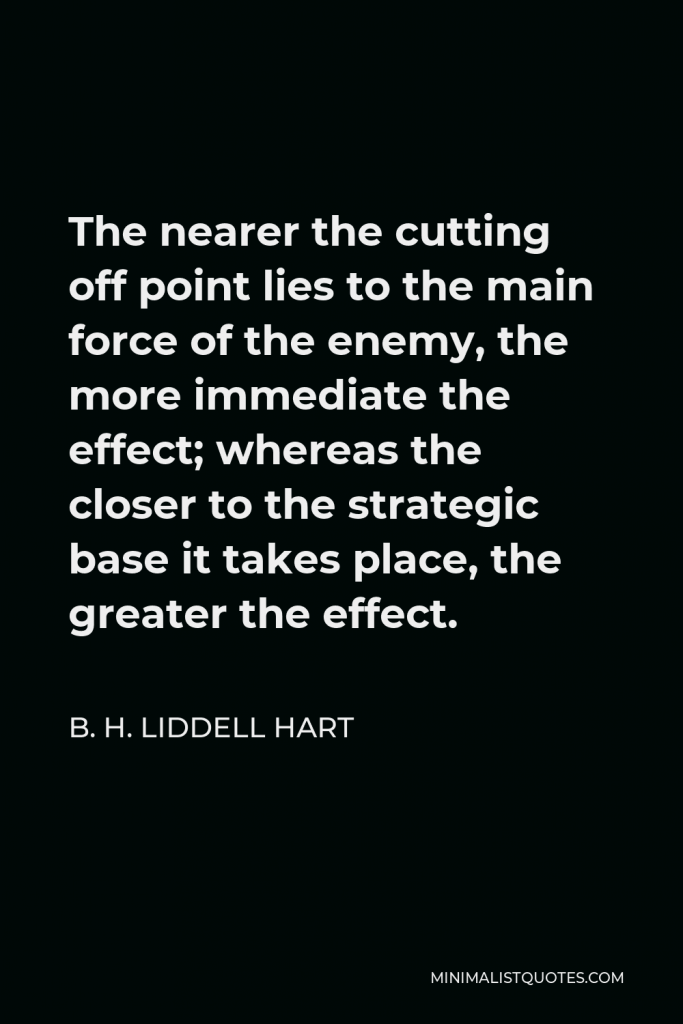

The nearer the cutting off point lies to the main force of the enemy, the more immediate the effect; whereas the closer to the strategic base it takes place, the greater the effect.
B. H. LIDDELL HART -







Ensure that both plan and dispositions are flexible, adaptable to circumstances. Your plan should foresee and provide for a next step in case of success or failure.
B. H. LIDDELL HART -





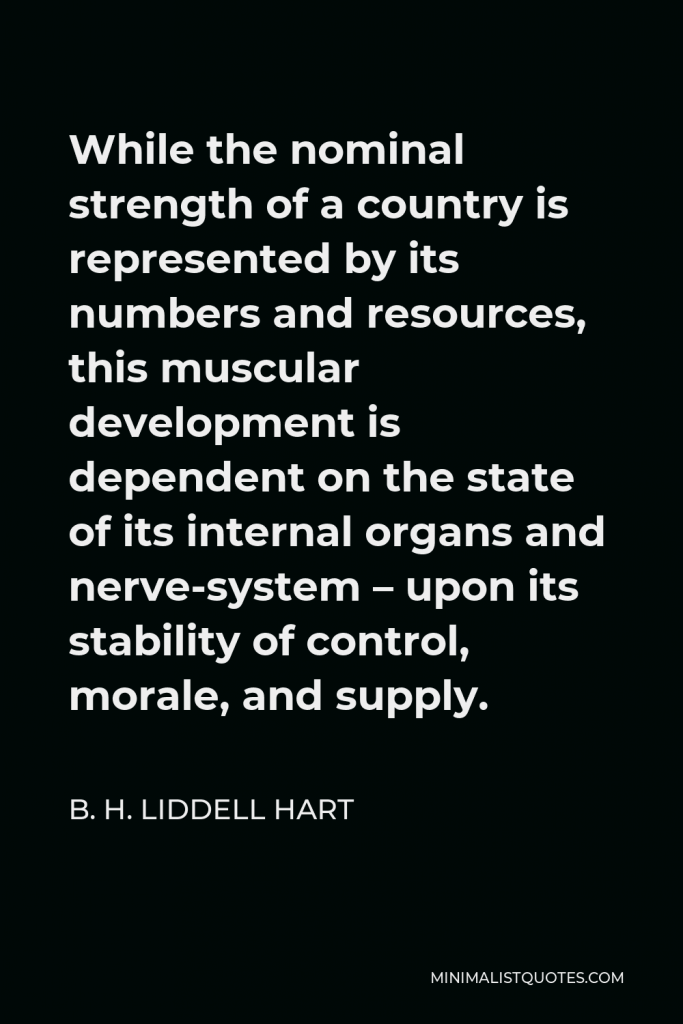

While the nominal strength of a country is represented by its numbers and resources, this muscular development is dependent on the state of its internal organs and nerve-system – upon its stability of control, morale, and supply.
B. H. LIDDELL HART
![B. H. Liddell Hart Quote - The more closely [the German army] converged on [Stalingrad], the narrower became their scope for tactical manoeuvre as a lever in loosening resistance. By contrast, the narrowing of the frontage made it easier for the defender to switch his local reserves to any threatened point on the defensive arc.](https://minimalistquotes.com/wp-content/uploads/2022/10/the-more-closely-the-german-army-converged-on-stal.jpg)
![B. H. Liddell Hart Quote - The more closely [the German army] converged on [Stalingrad], the narrower became their scope for tactical manoeuvre as a lever in loosening resistance. By contrast, the narrowing of the frontage made it easier for the defender to switch his local reserves to any threatened point on the defensive arc.](https://minimalistquotes.com/images/grey-the-more-closely-the-german-army-converg.jpg)
![B. H. Liddell Hart Quote - The more closely [the German army] converged on [Stalingrad], the narrower became their scope for tactical manoeuvre as a lever in loosening resistance. By contrast, the narrowing of the frontage made it easier for the defender to switch his local reserves to any threatened point on the defensive arc.](https://minimalistquotes.com/images/blue-the-more-closely-the-german-army-converg.jpg)
![B. H. Liddell Hart Quote - The more closely [the German army] converged on [Stalingrad], the narrower became their scope for tactical manoeuvre as a lever in loosening resistance. By contrast, the narrowing of the frontage made it easier for the defender to switch his local reserves to any threatened point on the defensive arc.](https://minimalistquotes.com/images/red-the-more-closely-the-german-army-converg.jpg)
![B. H. Liddell Hart Quote - The more closely [the German army] converged on [Stalingrad], the narrower became their scope for tactical manoeuvre as a lever in loosening resistance. By contrast, the narrowing of the frontage made it easier for the defender to switch his local reserves to any threatened point on the defensive arc.](https://minimalistquotes.com/images/brown-the-more-closely-the-german-army-converg.jpg)
![B. H. Liddell Hart Quote - The more closely [the German army] converged on [Stalingrad], the narrower became their scope for tactical manoeuvre as a lever in loosening resistance. By contrast, the narrowing of the frontage made it easier for the defender to switch his local reserves to any threatened point on the defensive arc.](https://minimalistquotes.com/images/white-the-more-closely-the-german-army-converg.jpg)

